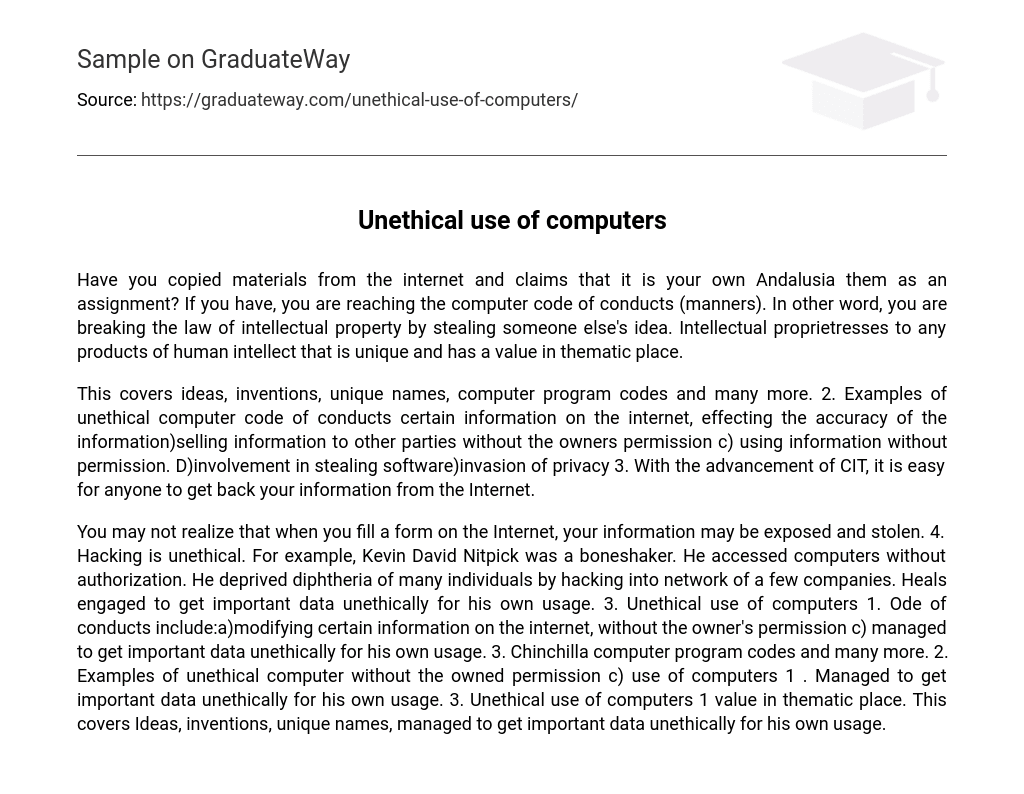Have you copied materials from the internet and claims that it is your own Andalusia them as an assignment? If you have, you are reaching the computer code of conducts (manners). In other word, you are breaking the law of intellectual property by stealing someone else’s idea. Intellectual proprietresses to any products of human intellect that is unique and has a value in thematic place.
Now computers are used everywhere, and therefore the concept of computer ethics is extremely relevant for most ordinary citizens, and even more so for people whose work responsibilities are related to the use of computer technology. That is why both managers and subordinates in departments where computers are used need to be familiar with the basic principles of computer ethics. The issue of computer ethics and computer law is even more relevant for companies and individuals whose activities are directly related to the development of various software or practical technical solutions in the information sphere.
The first regulatory document that had a significant impact on the formation of computer ethics as a separate area of ethics was the Code of Fair Use of Information, introduced in the United States by the Department of Health and Human Services. The basic provisions of this code primarily concerned the storage and processing of personal data, but became the basis for the further functioning of the entire international system of computer ethics.
With the development of the world community, other ethical codes arose that regulated the handling of computers. Basically, most of these documents are completely informal codes, the mandatory implementation of which is not supported by legislative regulations. At the same time, given the pace of computerization, in many countries of the world both separate codes of ethics concerning the handling of computer equipment are being adopted, and actions are being taken to consolidate computer ethics standards as general imperative postulates of legislation.
Also, individual measures governing computer ethics issues are often established at the local level. For example, it could be the netiquette of certain online communities. Or – the principles of corporate ethics when dealing with computer equipment in any individual enterprise.





